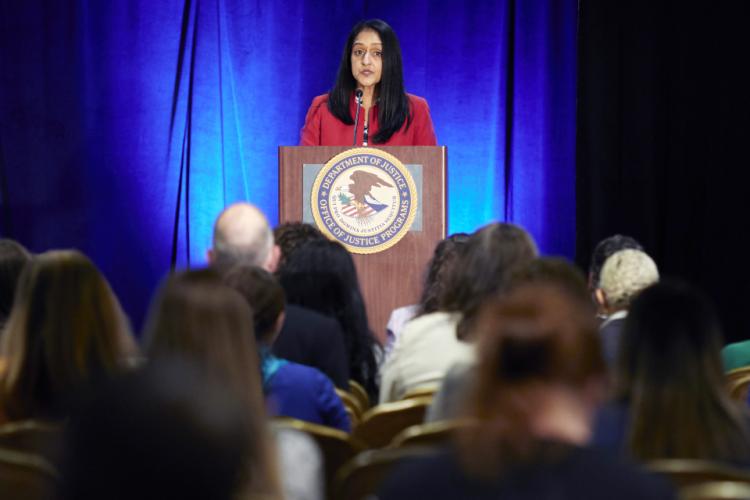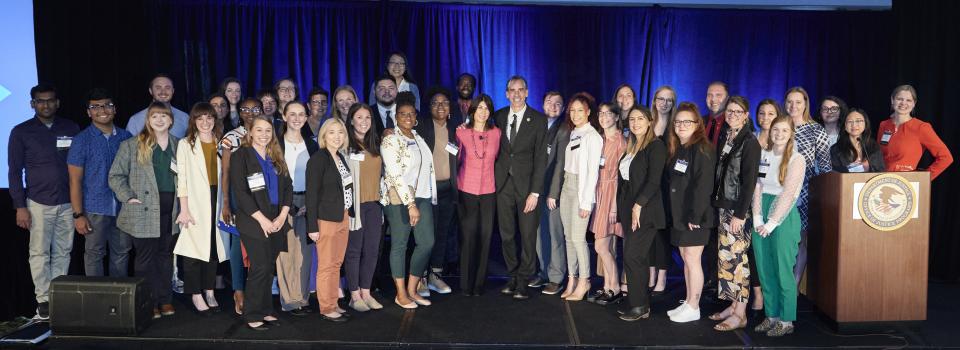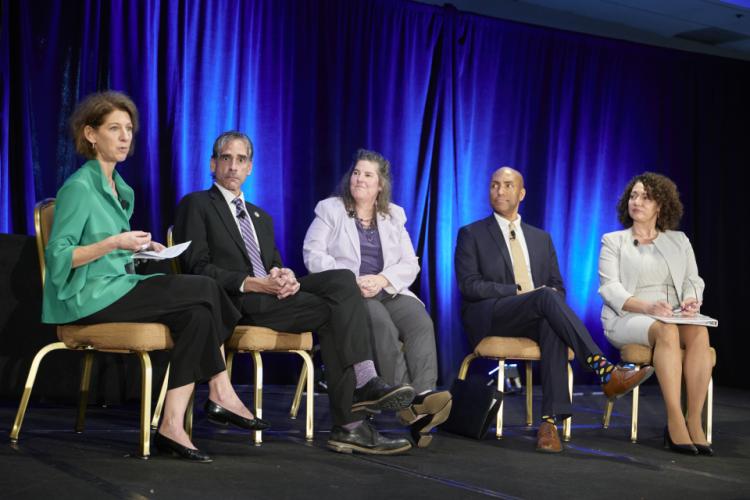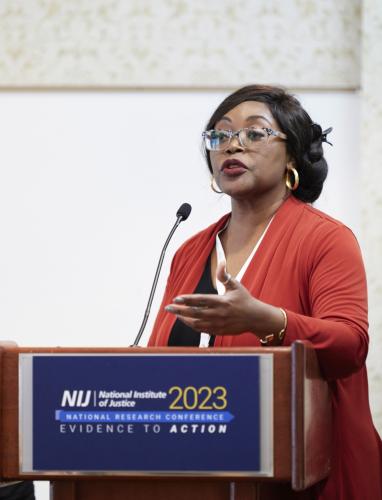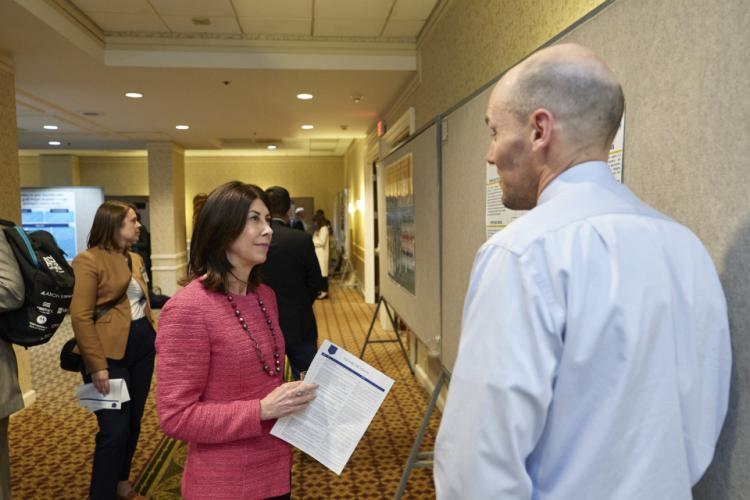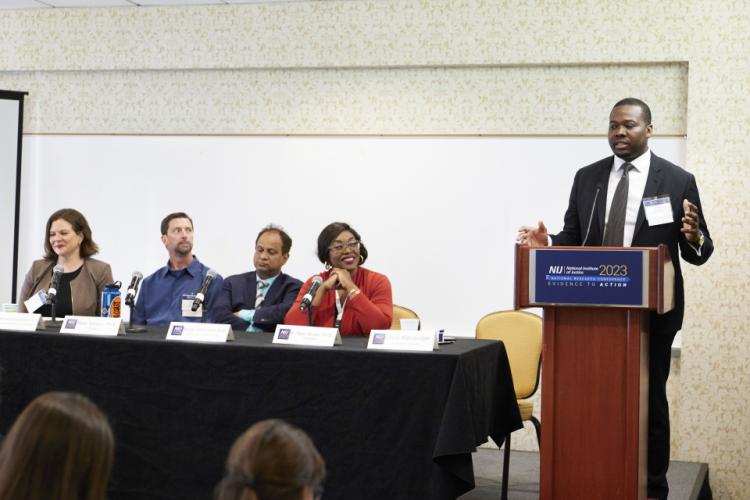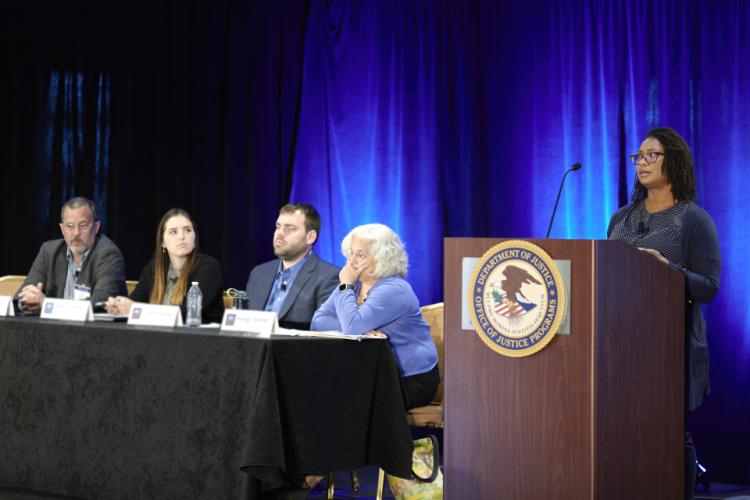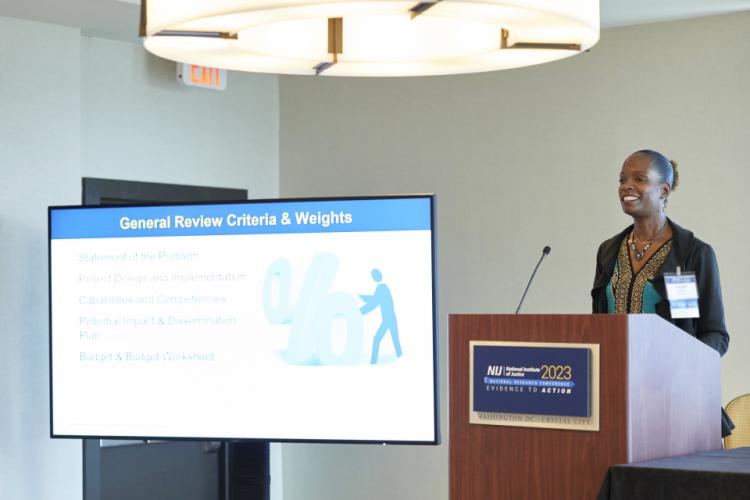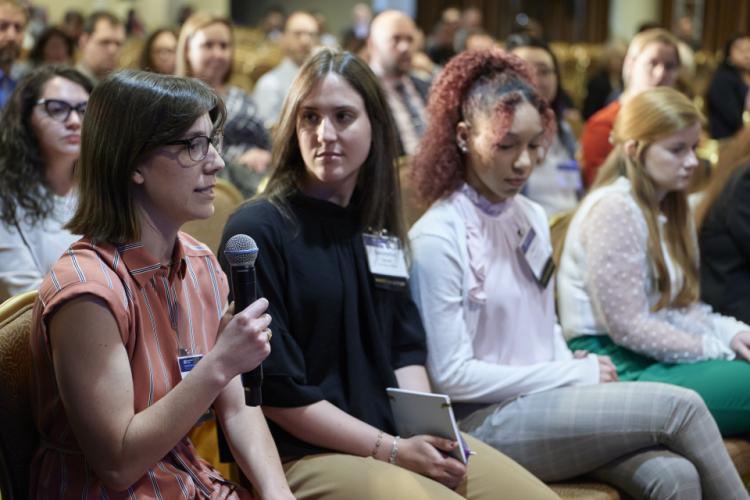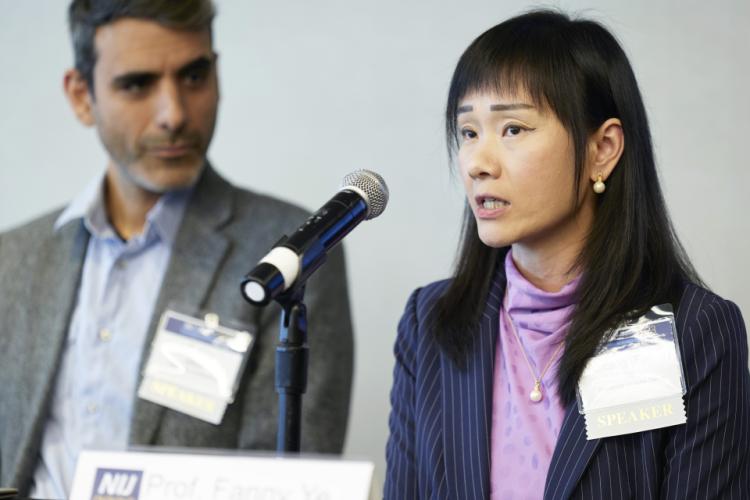Archival Notice
This is an archive page that is no longer being updated. It may contain outdated information and links may no longer function as originally intended.
Thank You and Follow-Ups
A huge thank you to everyone who attended the conference or watched the live-streamed events. We are both energized and exhausted and hope you found the panels and plenaries as exciting and informative as we did.
- Conference Summary: NIJ Research Conference Promotes Evidence to Action
- Plenary Summary: Embodying Evidence to Action: Tracking the Impact of Three Key NIJ Research Investments
- Plenary Summary: What Works in De-Escalation Training
- Plenary Summary: The Importance of Inclusive Research
- Plenary Summary: Using Science To Enhance Equity
- Plenary Summary: Looking Beyond Recidivism: New Research on Well-Being in Prisons and Jails From the National Institute of Justice
- Plenary Summary: Research on the Mounting Problem of Correctional Officer Stress
See the YouTube Terms of Service and Google Privacy Policy
See the YouTube Terms of Service and Google Privacy Policy
See the YouTube Terms of Service and Google Privacy Policy
See the YouTube Terms of Service and Google Privacy Policy
Access podcast episodes featuring speakers from the conference:
A look back at the 2023 NIJ Research Conference
NIJ hosted a three-day, in-person conference from May 23-25, 2023, in Arlington, Virginia.
The theme of NIJ’s 2023 Research Conference was “evidence to action,” and our goal was to bring researchers and practitioners together to learn about the latest research evidence and how it can be implemented to promote safety, equity, and justice.
Conference participants were be exposed to a wide array of topics, including youth mentoring, officer wellness, school safety, forensics, technology evaluation, and strategies to engage in more inclusive research processes. Attendees also learned how to find, apply for, and manage NIJ grant awards.




